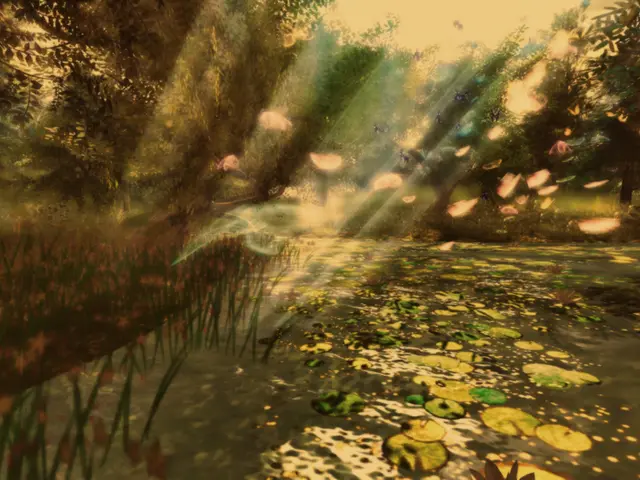New Physicist Taking the Helm at Germany's Largest Science Museum
Museum Leadership Shift: German Museum Appoints Physicist as New Director - Scientist assumes control over German Museum
It's a whole new era at Germany's biggest science museum as Michael Decker, a physics professor from Karlsruhe, takes the reins as the museum's new general director. He's stepping into the shoes of Wolfgang Heckl, who's hanging up his lab coat after a stellar 21-year run.
Bringing People and Tech Together
At the official handover, Decker expressed his excitement, stating, "I consider my appointment a great honor." In terms of future ambitions, he plans to delve deep into understanding the museum's inner workings before setting his sights on positioning the museum as a hub for discussions surrounding the societal implications of science and technology.
Decker aims to ignite the public's passion for natural sciences, spark conversations between visitors, and act as a conduit for dialogue with the scientific community. He believes it's crucial to address priorities as a patient navigating AI, for example, rather than leaving the decision-making process to experts alone.
Rollercoaster Ride in Faraday's Cage
Looking back at his childhood, a captivating encounter with lightning in a high-voltage show left a lasting impression on Decker. He recalled being challenged to enter Faraday's cage, where he witnessed the electrifying spectacle that left a powerful impact on him.
Museum enthusiasts who missed the Mining Museum during its renovation can look forward to the possibility of a digital twin being developed—more discussions will take place with the new leadership, as hinted by Science Minister Blume. Decker expressed enthusiasm about reviving the mine, even if it takes on a new form.
Fit for the Job
Markus Blume, Science Minister (CSU), endorsed Decker as the perfect choice for his new role, emphasizing the need for technology to inspire rather than instill fear, and for it to be honored but not blindly trusted. Focusing on the future rather than the past, the museum plays a pivotal role in showcasing AI and quantum technology, sometimes even offering experiences that are still being researched elsewhere.
Heckl, who helmed the museum for over two decades, bore the title of the longest-serving director among his predecessors. "Serving this house for more than 20 years was a great honor for me," said Heckl, expressing his contentment at passing the mantle to Michael Decker.
Blume commended Heckl's contributions: "Inspiring people about technology is a lifelong passion of Heckl's, and the Deutsches Museum as we know it today is a testament to his dedication. Heckl was also a driving force behind the future initiative and general renovation, scheduled to complete in 2028 at an estimated cost of 750 million euros."
Multiple Locations Across Munich, Nuremberg, and Bonn
As one of eight research museums in the Leibniz Association, the Deutsches Museum spans several locations in addition to its main museum island. Other sites include the traffic center on Munich's Theresienhöhe, the aviation museum in Schleißheim, and outposts in Nuremberg and Bonn.
- Michael Decker, the new general director at Germany's largest science museum, aims to position the museum as a platform for socially significant discussions, focusing on areas such as the societal implications of science, technology, and education-and-self-development.
- In his new role, Decker intends to address the role of technology in everyday life and decision-making processes, fostering public discussions on pressing topics like the ethics of AI, highlighting the importance of balancing technology with education and self-development.







